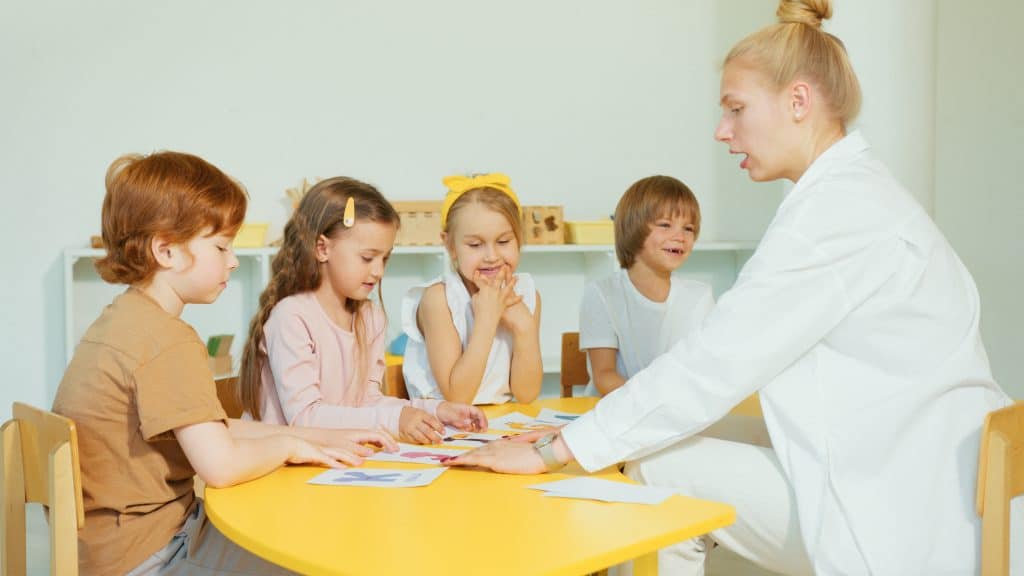For parents and caregivers in New York City, finding the right special education services often involves sifting through a maze of policies, schools, and resources. This blog aims to simplify that process, providing evidence-based insights into the NYC special education landscape. Drawing on research and firsthand accounts from parents who’ve been there, you’ll find a comprehensive guide designed to empower you in making informed decisions for your child’s educational journey. Here, you’ll uncover different facets of the NYC special education system, explore top-rated institutions, and discover the eligibility criteria for special education programs.
Table of Contents
Top 5 NYC Special Education
Firstly, let’s dive deep into the heart of NYC’s special education scene. What sets it apart? Why do families flock to these institutions? Here, we present five of the city’s most lauded institutions for special education.
| Name of Location | Star Rating | Number of Reviews | Address | Hours of Operation | Description |
|---|---|---|---|---|---|
| Rebecca School | 3.8 | 13 | 40 E 30th St | Open ⋅ Closes 4 PM | Known for its focus on emotional intelligence and social skills development. |
| Winston Preparatory School- New York | 4.3 | 14 | 126 W 17th St | Open ⋅ Closes 5 PM | Prides itself on a robust support system, including tailored academic coaching. |
| The Child School | 3.7 | 22 | 587 Main St | N/A | Emphasizes hands-on experiences and learning through interactive activities. |
| New York Institute For Special Education | 4.2 | 19 | Bronx, NY, United States | N/A | Offers a wide range of specialized services, including occupational and speech therapy. |
| Stephen Gaynor School | 4.4 | 13 | 148 W 90th St | N/A | Stands out for its commitment to arts-based learning and holistic development. |
Read more: Best Special Education Schools in NYC | Parent Guide
What is Special Education in NYC?
Now that we’re familiar with some schools, let’s dig deeper. Merely put, NYC’s special education is a diverse ecosystem, catering to the varying needs of neurodivergent kids.
It encompasses various services and supports to foster each child’s academic and personal success. These range from personalized learning plans to specialized therapy sessions and support services—each designed to empower kids with thinking and learning differences.
What are the Best Public Schools for Special Education in NYC?
Evaluating schools can be tricky. Our city, however, boasts public schools with stellar reputations in special education. One example? The Lower Manhattan Community School. It’s applauded for its inclusive classrooms, where neurodivergent kids learn alongside neurotypical kids.
The Brooklyn School of Inquiry, meanwhile, offers a stimulating, inquiry-based education. Here, kids with diverse abilities thrive in a nurturing environment that fosters resilience and creativity.

Read more: Special Education Programs in Public Schools
Who is Eligible for Special Education in NY?
Moving right along, who’s eligible? Not all kids with learning and thinking differences may qualify. Criteria for special education in NY are governed by the Individuals with Disabilities Education Act (IDEA).
Kids from age 3 to 21 who display difficulties in learning and performance may meet the eligibility. However, the process involves comprehensive evaluations and assessments to identify their unique needs.
What Qualifies a Child for Special Education?
Above all, understanding the qualifying process is key. It begins with referring a child for evaluation, typically by parents, guardians, or teachers who notice signs of developmental or learning difficulties.
The process includes observing the child’s behavior, performance, and abilities. Diagnoses like ADHD, autism, and dyslexia – to name a few, could qualify a kid. However, not every neurodivergent child may meet the criteria.
How Goally Can Help
Evidence shows that kids learn best when they’re having fun. Many teachers recommend using learning tech like Goally to engage with kids in a way they love.
In the classroom, Goally can help kids with:
- Following directions by providing visual and verbals supports to help them understand each task.
- Staying on task by providing timers and reminders to help them stay focused.
- Communicating with their teachers and peers through the AAC Talker app that allows them to express wants and needs.
- Identifying and regulating their emotions before children have a meltdown because they are overstimulated.
Goally’s distraction-free kid’s tablet can be used as a therapy tool to help teach executive function, language, emotional regulation, finger dexterity skills, and more!
Uncovering the nuances of the NYC special education scene might seem daunting. But, equipped with the right knowledge and supportive tools like Goally, navigating this maze can become significantly simpler. As you venture into NYC’s special education landscape, remember that every step builds a brighter, more empowering future for your child. You’re not alone in this journey, and through understanding, patience, and the right tools, all kids have the potential to thrive.

Hennah is an experienced writer and researcher, helping children with autism, ADHD, and other neurodivergent conditions. As a blog contributor for Goally, she combines her deep understanding of neurodiversity with practical advice, offering valuable insights to parents and educators.





